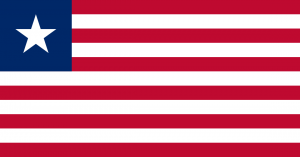
In 1776, the United States of America declared independence from Great Britain. Only forty-four years afterward, the United States established its own colony on the coast of West Africa. In 1820, the American Colonization Society began the process of sending African-Americans to the West African coast. This colony evolved into the modern nation of Liberia. Though Liberia declared independence in 1847, an American empire lived on in places like the Philippines, Puerto Rico, Guam and various Pacific and West Indian islands. Was it hypocritical for the United States to establish an overseas empire? That is the question that I seek to explore in this post.
First, a bit of history of the Liberian colonization initiative. In 1820, the United States faced the great issue of slavery. The Southern economy was built on slave labor while the North was primarily anti-slavery. Although many Northerners and some Southerners agreed that slavery was wrong, they disagreed about what to do about it. Some, like William Lloyd Garrison, called for complete, immediate and final abolition of slavery and freedom for slaves. Some wanted freedom for the slaves but monetary restoration to slave-owners. Others, like the American Colonization Society, wanted to send freed slaves back to Africa to establish colonies for freed slaves. The initiative to establish the colony at Liberia was supported by the President in 1820, James Monroe. Later, when Liberia declared itself a Republic, its capital was named Monrovia, after Monroe.
So was it right for a nation built from former colonists to establish their own colonies? I will examine this question in the context of Liberia, not the Philippines, Guam, etc.
I believe that, in the context of the Liberian colony, the colonization initiative was legitimate and initiated from a legitimate desire to establish a free haven for former slaves. The establishment of Liberia was not built on a sinister desire to expand territory or power. The purpose of the colonization of West Africa was to create a colony where free slaves could be sent to find a better life. Although Liberia did declare independence, many freed slaves and Freedmen (free African-Americans) chose to stay in the United States. Occasionally, initiatives would be made to try to return African-Americans to Africa. The most notable of these movements was Marcus Garvey’s Back To Africa movement in the 1920s.
By the outbreak of World War I, the only free nations on the face of the African continent were Abyssinia (Ethiopia), which had defeated multiple Italian attempts to subdue it, and Liberia, which was built like a Little America and was founded on the same political principles as its mother nation.
This Week’s Fun Fact–In 1829, two men robbed a train. Back in those days, that was a capital offense. One of the men, George Wilson was an acquaintance of President Andrew Jackson. Jackson offered Wilson a pardon, but the condemned refused!
This Week’s Inspiring Quote–“Courage is what it takes to stand up and speak; courage is also what it takes to sit down and listen.” -Winston Churchill
